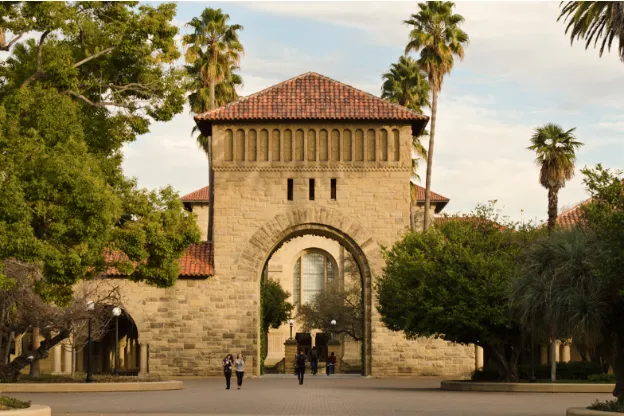Table of Contents
Since Hamzeh Daoud wrote on Facebook that he would “physically fight Zionists on campus next year,” progressive students at Stanford have rushed to his defense, either praising his “immense moral and intellectual stature” or assailing his critics’ “bullying tactics.”
Sam Wolfe, editor-in-chief of The Stanford Review, recently added a conservative voice to the morass of rationalizations. “To me,” Wolfe writes, “what happened here is quite simple. A student made a poorly thought out comment. And the mob came for him.”
Indeed, what happened may be quite simple—but it is not as Wolfe claims.
In his article, Wolfe paints Daoud as a martyr of a “pitiful” campus culture hostile to free thought and expression. Daoud, Wolfe claims, never intended to act on his threat (nor could he have done so, we’re told). Nevertheless, he was sacrificed on the altar of political correctness. The students that “pounced” upon him merely wanted to “score a point for [their] team” and take “action against one of Stanford’s most prominent activists at any cost.”
This saga, if Wolfe is correct, is yet another instance of campus intolerance—only this time it’s the conservative students leading the witch hunt. However, Wolfe’s analysis contains several problems and ultimately betrays a deeper, relativizing tendency that should worry the campus Right.
The first error is that Wolfe not only blurs the sharp line between violent threat and “stupid” comment, but he entirely glosses over the crux of the issue: Daoud was not some random activist, whom the “mob” unfairly singled out, but a Resident Assistant (RA) entrusted by the University with authority over, and responsibility for, incoming freshmen. Wolfe argues that Daoud does not pose a physical danger to other students. However, this point is irrelevant to the question of whether Daoud should remain an RA. A physical threat by a random student is deplorable, but for an RA, such a threat is simply unacceptable. It reflects a temperament incompatible with the stability and judgment required of the position. Wolfe disregards this conclusion and instead attacks the motives of the students who called for Daoud’s removal or resignation.
The second problem with Wolfe’s argument is that it boils down the backlash against Daoud’s threat to the so-called “mob,” by which Wolfe presumably means Stanford College Republicans (SCR) and their supporters. Perhaps this was an honest mistake. Neither Jewish nor Zionist, Wolfe may have simply missed the flood of emails, tweets, and Facebook posts written in response to Daoud’s threat by concerned Jewish and Zionist students—the vast majority of whom look askance at SCR. Then again, Wolfe does question, somewhat mockingly, whether “the throats of the Zionists reading that post tighten with fear.”
Honest mistake or not, Wolfe’s characterization of the Daoud saga as a Machiavellian struggle between campus political activists misses the mark. True, SCR was the first to publicize Daoud’s threat. True, some students may have been motivated by gleeful vindictiveness. But for many Jews and Zionists, myself included, responding to Daoud’s threat had nothing to do with “scoring a point” for some team. It was about refusing to sit back, in silent resignation, after being physically threatened by a fellow student with University-granted authority. To stand up for oneself and one’s community is not petty, whiny, or some perverted form of “mob justice.” It is doing what is right.
Beneath the flaws in Wolfe’s reconstruction of the events lies a deeper problem, the implications of which extend beyond this single case. Wolfe’s equating of an RA’s threat of violence with other “stupid” comments is symptomatic of a general lack of confidence on the Right. Conservatives are reluctant to distinguish between legitimate and illegitimate speech out of fear that this distinction will be twisted and used against them. “Conservatives,” Wolfe writes, “have good reason to disdain” the “culture of pouncing upon someone for a poorly thought out comment...they are, more often than not, its victims.”
Wolfe’s warning brings to mind the Stanford Review’s campaign against David Palumbo-Liu earlier this year. In January, the Review called on the Stanford professor to resign for failing to disavow Antifa, even though he never personally made any violent threats. If this is what Wolfe means by the danger of “pouncing upon someone,” then I am in full agreement.
But the case of Hamzeh Daoud’s Facebook threat is something else entirely. Conservatives may be afraid that the red lines they draw will be distorted. However, this fear is no excuse for papering over the very real difference between legitimate (if revolting) speech and violent threats.
It is possible to fight for free speech while also standing up to threats of physical violence. Doing so doesn’t make you part of a mob. It shows that you are capable of making important moral distinctions.









